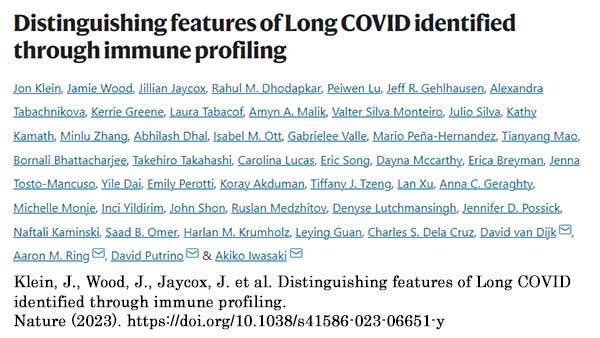A step forward in the diagnosing of Long COVID

One in eight acute COVID infections leads to persistent COVID symptoms and methods to consistently either diagnose or treat the syndrome have so far remained elusive.
In a study reported in Nature on 25 September, entitled Distinguishing features of Long COVID identified through immune profiling, an immune system biomarker combinations was identified that distinguish Long COVID (LC) cases from those with no persisting symptoms.
There have been many proposed hypotheses about what might cause LC and this paper discount several of them. Specifically LC is unlikely to be an autoimmune flare-up, as are persisting hidden pocket of SARS virus.
LC sufferers seem to have lower overall immune vigilance against novel pathogens (low cortisol and fewer dendritic cells), while maintaining hypervigilance (high monocyte counts and inflammatory cytokines) against repeat encounters with SARS-CoV-2 and other previously encountered viruses eg herpes and Epstein-Barr.
Of all the potential biomarkers identified, low cortisol was most predictive of LC, with an area under the curve of 0.96 .
Low cortisol alone is known to be manifest the top four symptoms of LC, namely fatigue, brain fog, poor memory and confusion.
Greater understanding of the human immune system for Long COVID patients is a step forward. Now AI analysis of much larger data sets need to be undertaken to determine the underlying causes in order to allow the development of an effective LC diagnostic tool.
2nd October 2023








